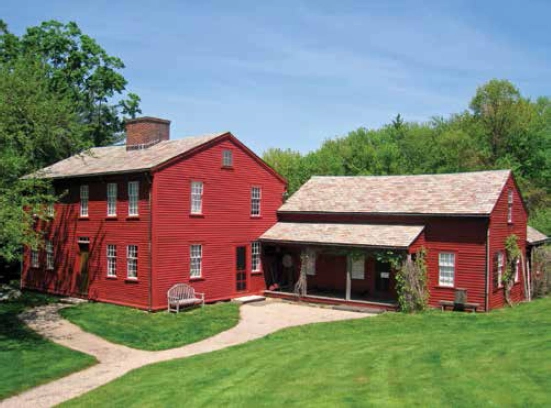Bronson’s asceticism achieved a high-water mark in 1843, when the Alcott family became charter members of Fruitlands, a vegan agrarian commune where, according to Bronson and the community’s cofounder Charles Lane, the laws of life might be summarized in a single word: “Abstain.” At Fruitlands, the influence of The Pilgrim’s Progress was powerfully in evidence. Eleven-year-old Louisa wrote in her journal that her father read aloud from the book. She pronounced Bunyan’s writing “dear,” and she copied lines from it into her diary. Toward the end of the Fruitlands experiment, Bronson Alcott proposed that the failing community might save itself by dividing along gender lines—he going one way and his wife and children going another. It is highly probable that his suggestion was partly motivated by Christian’s renunciation of his family in The Pilgrim’s Progress.

In a bold but ill-conceived experiment in communal living, the Alcotts spent the better part of 1843 seeking transcendence at the Fruitlands commune near Harvard, Massachusetts. Instead they found privation and a severe threat to their unity. (Louisa May Alcott Memorial Association)
Fruitlands did not endure. The influence of The Pilgrim’s Progress over the Alcott family did. Bronson Alcott continued to perceive his life through its textual lens. For Louisa herself, no single literary influence was as clearly dominant. Shakespeare, Scott, Charlotte Brontë, and Dickens all made large claims upon her mind, and the fact that Little Women alludes to more than sixty authors attests to the breadth of her literary diet. Yet Little Women might not even exist if it were not for Bunyan, and we need to understand why, apart from his strong presence in Alcott’s own upbringing, his sway remained so powerful.
The answer begins with the fact that, in the late 1860s, The Pilgrim’s Progress was a part of the Anglo-American cultural lingua franca. In 1866, Cincinnatian Philip Phillips published a collection of hymns called The Singing Pilgrim, or, Pilgrim’s Progress Illustrated in Song. Mark Twain gave his 1869 book The Innocents Abroad the subtitle The New Pilgrim’s Progress. The same year, England’s Mary Godolphin published a children’s edition of Bunyan’s work called The Pilgrim’s Progress in Words of One Syllable, and Ebenezer Porter Dyer made his contribution to the literature with Bunyan’s Pilgrim’s Progress in Verse. Essays and lectures poured forth in abundance, and a determined bibliographer would be required to identify all the new editions of the book itself that were coming into print. By relating the domestic drama of Little Women to the spiritual strivings of Pilgrim’s Progress, Alcott immediately established a common ground for herself and her readership.
Another reason for Alcott’s reliance on The Pilgrim’s Progress was more personal; it gave her a way to place her father’s principles in the foreground of Little Women while keeping his problematic personality in the background. Although she proved adept at creating fictionalized alter egos for her mother and sisters, Alcott struggled to present her father in the light that she desired. In her private interactions with him, she dealt with his often-baffling eccentricities with heavy doses of humor. But the treatment that, between them, felt like good-natured raillery would have seemed like ridicule in print, and Alcott had no wish to hold her father up for laughter. Moreover, Bronson Alcott was, in many circles, a well-known figure. To place a fictionalized version of him near the center of the action in Little Women was to risk drawing too much attention from the main focus of Alcott’s story. In 1868, Alcott was also planning to write a novel for adults devoted solely to incidents in her father’s life, which she intended to call The Cost of an Idea. It would not have done for her to use in Little Women the material she was saving for this other project, one that, sadly, she was never able to complete. Alcott thus decided to keep Mr. March in Little Women largely hidden from view, sending him off to war for most of Part First and then virtually barricading him in his study for the majority of Part Second. So eager was Alcott to keep the March family’s patriarch sheltered from view that the first action he performs when he returns from the front is to “become invisible” in the embrace of his family.
Yet Alcott wanted to keep her father’s values—his love of self-sacrifice, his transcendence of earthly appetites, and his belief that the goal of life is spiritual purification—very much in view. A key device for doing so was to use The Pilgrim’s Progress as a leitmotif in Little Women. Observing both the hellish trials and heavenly potentials of human existence, The Pilgrim’s Progress is a fatherly book: one that teaches, cajoles, sets high standards, and demands the best of those it would instruct. It is, in all these features, similar to Bronson Alcott himself.
1 comment